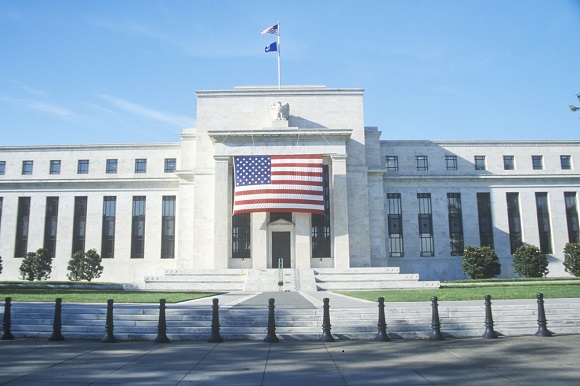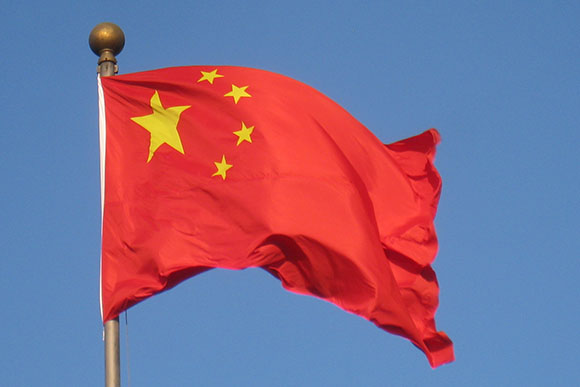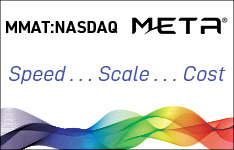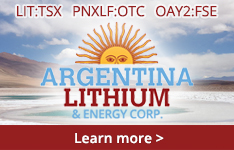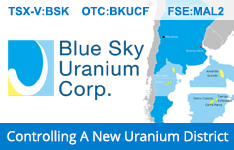Note: in the first article in this series, Adrian Day discusses impending tapering by the Federal Reserve and its potential effect on U.S. markets. A third article discusses gold and precious metals.
Globally, the picture is similar to the situation in the United States, with slowing economic recoveries, rising inflation, and for the most part central banks—and governments—without dry powder to fight any slowing. Interest rates are low and negative in much of the world, while fiscal policies have little room to expand after widespread spending abandon during COVID lockdowns. Many smaller banks, particularly in Eastern Europe and Latin America, are already raising rates, but the world’s major banks are hesitant to follow.
Europe’s growth slowing due to high energy prices
Europe had a strong economic recovery from very sluggish levels, with large government deficits. But now the recovery is dramatically slowing. Europe is heading into what analyst Larry McDonald calls an “ESG recession,” sparked by widespread “clean energy” policies (the ban on fracking in the U.K., for example, despite the discovery of large natural gas reservoirs). These policies have consequences, even if most politicians don’t look beyond the latest opinion polls while the intellectual class applauds.
"For the most part, emerging markets did their fiscal adjusting a decade ago and are now rebounding."
If energy prices are going up dramatically, with shortages throughout Europe (most notably in the U.K. and Germany, where gas prices have soared 421% and 170% this year respectively), it’s obviously something to do with those nasty "Ruskies." No one thinks of the ESG restrictions on traditional energy sources, nor the massive money printing that leads to all prices going up.
Inflation is also picking up across Europe; for the Eurozone, September CPI was up 0.5% month-on- month, and it was not an anomalous month.
China slowing while emerging markets stronger
China is also slowing, though from a higher sustained rate of growth, as the real estate market is cooling, and exports beginning to slow. The largest real estate developer, Evergrande, has now missed two scheduled debt payments and may fail; it has only kept going for a year or so by infusions of new money. An Evergrande failure will hurt Chinese real estate and may spread to the whole economy by causing cautious banks to reduce lending.
"Commodity exporters have strong current account surpluses and balance sheets, and virtually no dollar debt."
Chinese banks—generally—are undercapitalized after years of expansion, and frequent forgiveness of interest on loans, adding amounts to principal and thus exaggerating the loan to capital ratio. In response, the People’s Bank may actually cut rates again, even though growth is still the highest of any major economy in the world.
Though Evergrande’s failure would be a major event, so far it appears that banks in Europe and North America have little exposure to Evergrande and other at-risk Chinese developers, though some in Asia do.
Emerging markets, on the other hand, have already been raising rates. For the most part, emerging markets did their fiscal adjusting a decade ago and are now rebounding. Commodity exporters have strong current account surpluses and balance sheets, and virtually no dollar debt, having learned a hard lesson in the Asia crisis of the late 1990s.
Some, however, are still struggling with COVID, while commodity prices have different effects, depending on whether the country is an exporter or importer. In Brazil, to take an example, the economy is rebounding but inflation is also increasing. The central bank has increased rates from 2% to 5.5% over the past six months to get in front of inflation, and more increases are expected.
"[T]here is a shift from the U.S. from high growth to value and global markets, particularly in emerging markets; value has outperformed growth in these markets nearly 80% of the time."
Overall, however, in most countries, growth is slowing at the same time that price inflation is picking up. The combination—stagflation—is the worst of both worlds for the economy, positive for gold (vide 1970s), and possibly positive for stocks depending on whether the central banks fight the “stag” with easy money or the “flation” with higher interest rates.
Chinese stocks fall on regulatory crackdowns
In China, the continuing regulatory net has been cast broadly (tech, ride sharing, private education), and certainly broader than national security concerns (the original rational). The market is down 16% in the last seven months, and they are threatened from both sides in an increasing war of words with the U.S.
In addition to the Chinese crackdown, there are fears of U.S. restrictions on listings, with the SEC insisting Chinese companies open their books to U.S. auditors.
Many ADRs do not represent actual ownership in the companies but are more like tracking stocks, and these so-called Variable Interest Equities (VIE) are particularly in the crosshairs. However, most of the bad news is already reflected in stock prices, though extreme care and selectivity is required.
In sum, major markets around the world are expensive and the risk of a near-term pullback has increased. At the same time, there is a shift from the U.S. from high growth to value and global markets, particularly in emerging markets; value has outperformed growth in these markets nearly 80% of the time. We are cautious but always looking for good companies at reasonable valuations.
Adrian Day, London-born and a graduate of the London School of Economics, is the founder of Adrian Day Asset Management. His latest book is "Investing in Resources: How to Profit from the Outsized Potential and Avoid the Risks."
Disclosure:
1) Statements and opinions expressed are the opinions of author and not of Streetwise Reports or its officers. The author is wholly responsible for the validity of the statements. Streetwise Reports was not involved in any aspect of the article preparation. The author was not paid by Streetwise Reports LLC for this article. Streetwise Reports was not paid by the author to publish or syndicate this article.
2) This article does not constitute investment advice. Each reader is encouraged to consult with his or her individual financial professional and any action a reader takes as a result of information presented here is his or her own responsibility. By opening this page, each reader accepts and agrees to Streetwise Reports' terms of use and full legal disclaimer. This article is not a solicitation for investment. Streetwise Reports does not render general or specific investment advice and the information on Streetwise Reports should not be considered a recommendation to buy or sell any security. Streetwise Reports does not endorse or recommend the business, products, services or securities of any company mentioned on Streetwise Reports.
3) From time to time, Streetwise Reports LLC and its directors, officers, employees or members of their families, as well as persons interviewed for articles and interviews on the site, may have a long or short position in securities mentioned. Directors, officers, employees or members of their immediate families are prohibited from making purchases and/or sales of those securities in the open market or otherwise from the time of the decision to publish an article until three business days after the publication of the article. The foregoing prohibition does not apply to articles that in substance only restate previously published company releases.
Adrian Day Asset Management Disclosure:
Adrian Day Asset Management (“ADAM”) is an SEC-registered investment adviser located in San Juan, Puerto Rico. ADAM and its representatives are in compliance with the current filing requirements imposed upon SEC-registered investment advisers by those states in which ADAM maintains clients. ADAM may only transact business in those states in which it is registered or qualifies for an exemption or exclusion from registration requirements. (Note: Global Strategic Management, our legal name, is registered, or qualified to accept clients from all states and territories, including the District of Columbia.) A direct communication by ADAM with a prospective client shall be conducted by a representative that is either registered or qualifies for an exemption or exclusion from registration in the state where the prospective client resides. For information pertaining to the registration status of ADAM, please contact the SEC or the state securities regulators for those states in which ADAM maintains a notice filing. A copy of ADAM’s current written disclosure statement discussing ADAM’s business operations, services, and fees is available from ADAM upon written request. (Note, all clients receive this document prior to opening and account and are offered it annually.) ADAM does not make any representations or warranties as to the accuracy, timeliness, suitability, completeness, or relevance of any information prepared by any unaffiliated third party and takes no responsibility therefor. All such information is provided solely for convenience purposes only and all users thereof should be guided accordingly. Past performance may not be indicative of future results. Therefore, there can be no assurance (and no current or prospective client should assume) that future performance of any specific investment or investment strategy (including the investments and/or investment strategies recommended or undertaken by ADAM) made reference to directly or indirectly by ADAM will (i) be suitable or profitable for a client or prospective client’s investment portfolio or (ii) equal the corresponding indicated historical performance level(s). Different types of investments involve varying degrees of risk. Historical performance results for investment indices and/or categories generally do not reflect the deduction of transaction and/or custodial charges, the deduction of an investment management fee, or the impact of taxes. (Note, any performance number provided for Adrian Day Asset Management accounts is after the deduction of all transaction costs and fees.) The material contained herein is provided for informational purposes only and does not constitute an offer to buy or sell or a solicitation of an offer to buy or sell any option or any other security or other financial instruments. Certain content provided herein may contain a discussion of, and/or provide access to, ADAM’s positions and/or recommendations as of a specific prior date. Due to various factors, including changing market conditions, such discussion may no longer be reflective of current position(s) and/or recommendation(s). Moreover, no client or prospective client should assume that any such discussion serves as the receipt of, or a substitute for, personalized advice from ADAM, or from any other investment professional. ADAM is neither an attorney nor an accountant, and no portion of the content provided herein should be interpreted as legal, accounting, or tax advice. Rankings and/or recognition by unaffiliated rating services and/or publications should not be construed by a client or prospective client as a guarantee that he/she will experience a certain level of results if ADAM is engaged, or continues to be engaged, to provide investment advisory services, nor should it be construed as a current or past endorsement of ADAM by any of its clients. Rankings published by magazines, and others, generally base their selections exclusively on information prepared and/or submitted by the recognized adviser.





